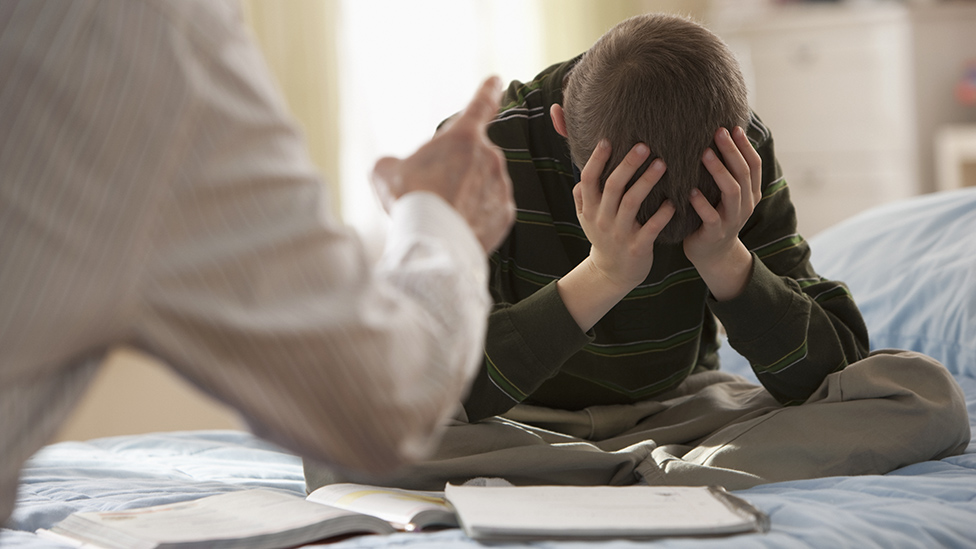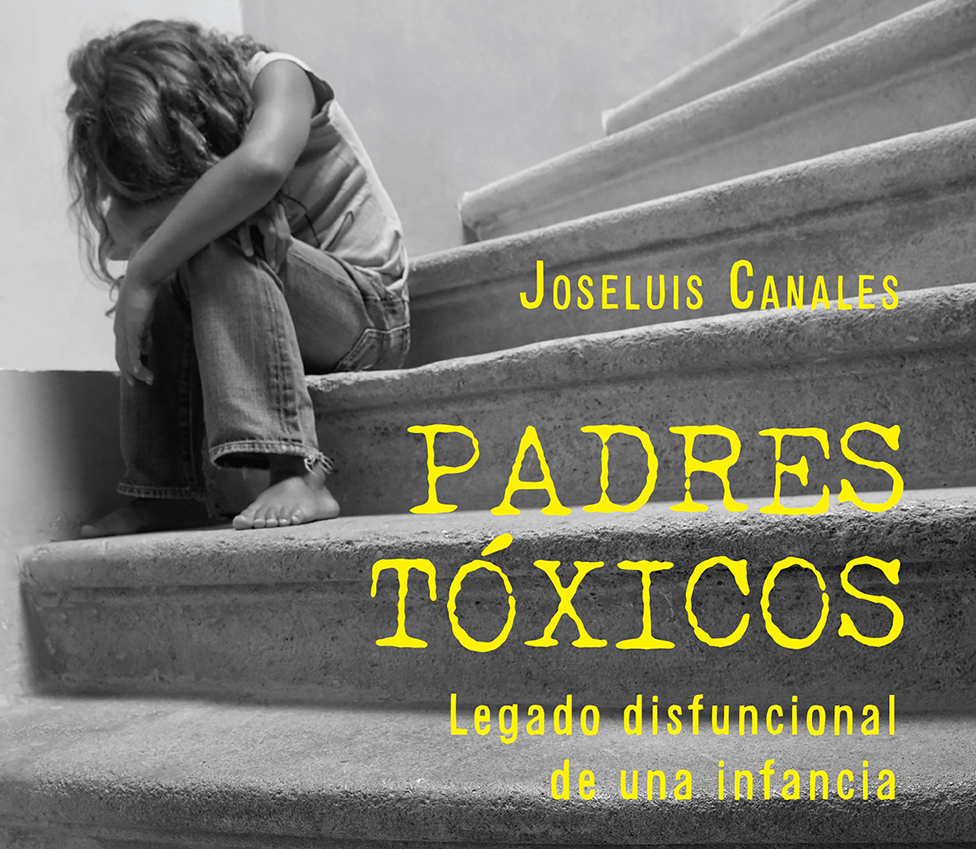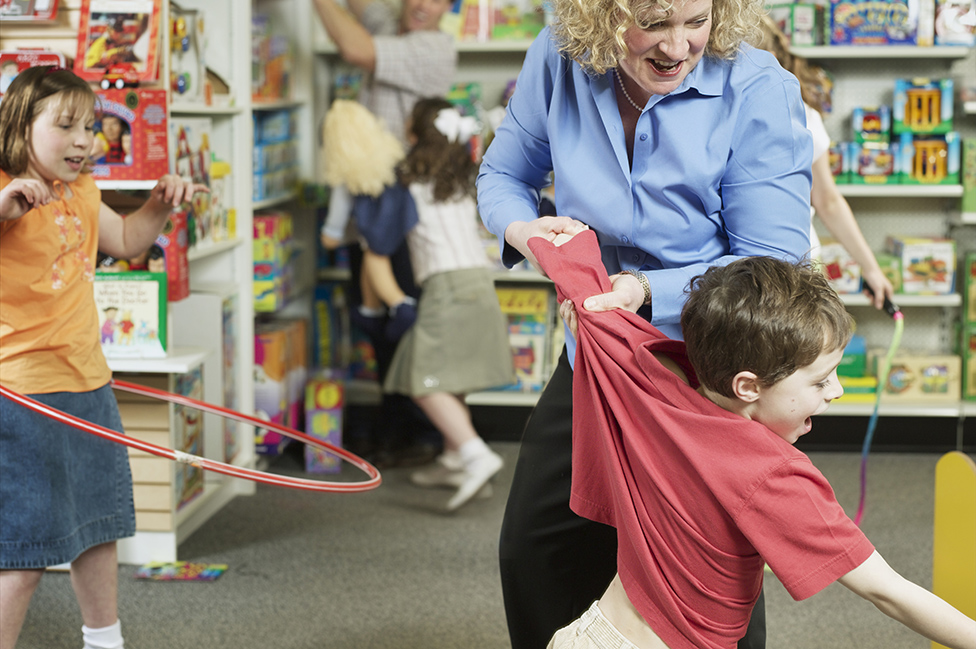May 8, 2023, 8:06 AM
May 8, 2023, 8:06 AM

A few years ago, the Argentine psychologist Camila Saraco realized that many of the patients who came to see her had something in common: they had had “toxic upbringings.”
Having a toxic father, the professional clarifies, does not mean having suffered exclusively from an abusive father.
“There are so many other ways that parents hurt, sometimes unconsciously,” she says.
He then decided to set up a workshop: “Toxic Parents”, to help understand which parental behaviors are unhealthy, what are the consequences for their children, and what those who have this type of parent can do.
Saraco points out that a bad parent not necessarily a bad person.
“There are a lot of mothers or fathers who are extremely good and who, from love, without wanting it, are also toxic,” he says.
The Mexican psychologist Joseluis Canales, author of several books, including “Toxic Parents: Dysfunctional Legacy of a Childhood”, published in 2014, agrees with this.
Canales points out that sometimes a parent is so good that they have no authority, something that is also harmful to the children.
Still, she says, “it’s important to understand that all parents make mistakes, and that doesn’t make them toxic.”

Give love and form
What then makes an upbringing unhealthy?
The author highlights that parents have two main functions: “Give love to your children and train them for life“.
Some parents generate damage because they fail to do the first. Others because they fail in the latter.
Interestingly, there seems to be a generation gap between these two groups.
The parents of the called Baby Boomers and Generation X tended to have more problems when it came to providing love and emotional support to their children.
Saraco says that several of her patients, over 40 years of age, have problems with low self-esteem and a feeling of insufficiency that generates conflicts in their relationship, something that she traces to a deficient upbringing from an affective point of view.
Instead, in recent decades, the damage is often caused by loving parents who They don’t know how to set limits and overprotect their children.raising “tyrannical children” who do not know how to handle their emotions and suffer because they get frustrated at the slightest obstacle.
How are toxic parents
It is important to clarify that both men and women can be toxic parents. And that, when there are two that breed, the damage is generated by both.
“If one of the members of the couple is toxic, the other is a passive abuser,” says Canales.
Here we tell you some of the characteristics from toxic parents.

abusive
Without a doubt, parents who sexually abuse or are violent with their children are the ones who hurt the most deeply.
But it doesn’t take a parent to physically abuse a child to generate a very difficult damage to healthe experts warn.
Verbal and emotional aggressions are also very harmful, they point out.
These range from disqualifying a child (“it won’t work out for you”, “leave it, I’d better do it”) to “insulting him with words that hurt his integrity, such as calling him an ‘idiot’, telling him that no one is going to love him or that He regrets having it.”
“The risk is that all this becomes your inner voice“, warns Channels.
For his part, Saraco remarks that, sometimes, “it is easier to heal a childhood with blows than one with psychological abuse.”
“There are parents who become violent when they drink. In these cases, the victim can come to understand that his parent hits him when he gets out of control and that he has the problem. On the other hand, if he grows up listening to humiliation, he assimilates it as something of his own,” he explains. .
handlers
Another trait of a toxic parent is manipulation, which Canales calls “emotional abuse.”
“The axis of this form of abuse has to do with the blame. The adult plays the victim in front of the child to blackmail him and get what he wants,” she describes.
Saraco notes that this feature is seen more in toxic mothers.

“It happens especially with daughters who live with their mother. The mother does not want them to form a couple so that they do not leave home, so she begins with negative comments and observations about the couple, or interferences that seek to separate them.”
“This makes the daughter live the relationship with guilt.”
controllers
This is a characteristic shared by toxic parents of different generations. But while before parents limited their children to achieve their submission, today they do it with the intention of protecting them.
“Before, toxic parents used to impose themselves, with a very aggressive setting of limits, instead of accompanying the autonomy of their children,” says Saraco.
Typical examples are parents who they pushed their children to study certain careers or follow certain family traditions.
“The effect on the son is that they cannot make decisions. It is seen a lot in boys who started careers, because disobeying their parents caused them a lot of anguish, and after a few years they left it,” says the psychologist.
Today toxicity passes through overprotect children wanting to avoid any suffering or frustration.
“Overprotection is also abuse, because the overprotected child learns that he cannot face life on his own,” explains Canales.
“Part of everyone’s learning is through mistakes. And mistakes breed frustration. You have to teach to tolerate frustrationotherwise the child is unable to develop in daily life”, he says.
negligent
Another characteristic of modern toxic parents is that “they are very permissive and are afraid of setting limits for their children,” which makes them negligent parents, according to Canales, since “they neglect the physical, emotional, social, and academic needs of their children. “.
While the negligent father of yesteryear was the absent one, or the one who did not pay attention to his son, today he is the one who “lets him eat what he wants, skip school, not do his homework and disrespect others”, exemplified.

“By being negligent, they give children a power that a child cannot handle in a healthy way. Children become the adults in the family system,” he warns.
In this type of upbringing everyone suffers, adds the psychologist.
“The boy grow up unable to fit in in a school, in a university, in a world of work, in a society in which he is not allowed to do what he wants,” he says.
Parents feel “imprisoned” by the son’s tantrums. And even society suffers, since “a generation of tyrants is being raised, who do not respect authority, have no capacity for frustration and, being very self-absorbed children, they have very little empathy and the ability to give in to the problems of others and see the common good”.
How to deal with toxic parents
If you grew up with parents who were permissive and overprotective, what you have to do is “make the decision to get out of that overprotectiveness,” says Saraco. However, he clarifies that this is something that can only be done when one is an adult.
“You cannot ask a child to get out of the protective toxic bond,” he warns.
Instead, he has several practical tips for those with abusive, controlling, and manipulative parents.
“First, it is important that you lose the illusion that you will be able to change them“.

“Don’t try to reason with them either, or understand how they think, because they have another way of seeing things, and you have to avoid getting into discussions that don’t get you anywhere,” he says.
“You have to try to get out of that place of trying to please them and like them all the time, which is what they want or make the child feel.”
“And it is key that you learn to put limits emotional and, if required, even physical,” he says.
However, the main job is with oneselfboth experts say.
“You have to try strengthen our self-esteem and security so as not to give in to manipulations, and not hesitate in those moments when the statements of those parents can intimidate or destabilize us,” says Saraco.
For his part, Canales affirms that “the most important thing is unlearn what they taught you what love is and relearn what true love is, to establish healthy relationships”.
Now you can receive notifications from BBC Mundo. Download the new version of our app and activate them so you don’t miss out on our best content.






